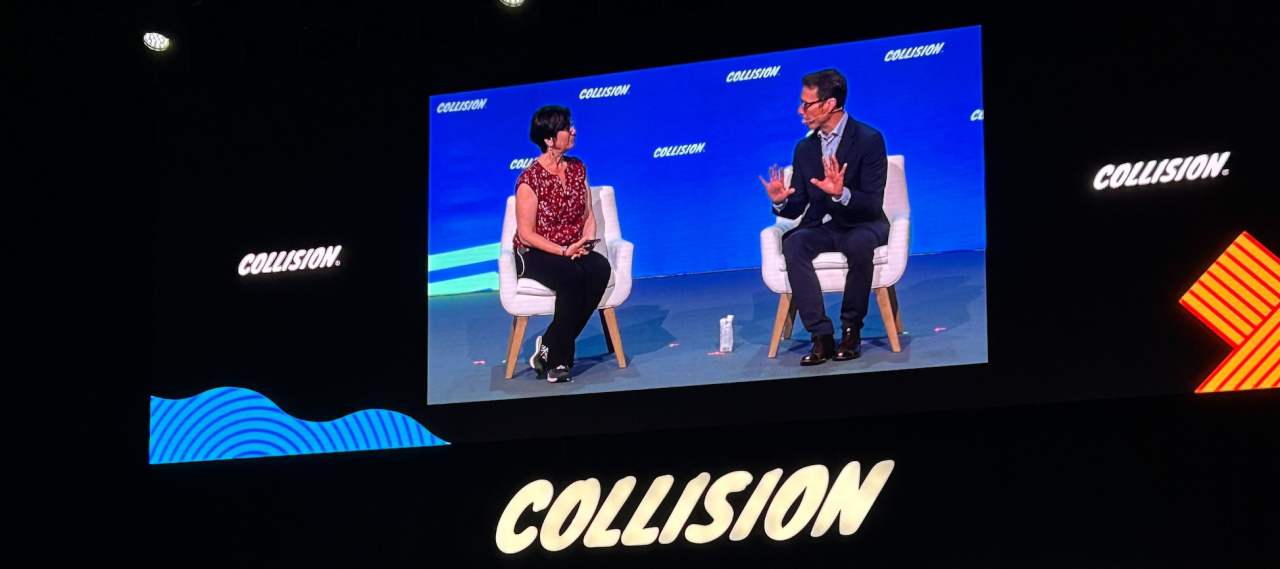It’s been a few weeks since the Collision conference in Toronto but I’m still energized from the incredible conversations, panels, and networking opportunities with so many impressive tech and business leaders.
Sharon Goldman, Fortune’s AI reporter, and I took the stage for a panel on, “How AI Is Transforming SaaS Innovation.” I shared my view that we’re near the peak of the “AI hype curve.” I’d estimate we’re seeing anywhere from 10 to 25 startups popping up every day around GenAI. Most of those will fail. That’s no different than what we see with every other technology paradigm shift.
But even so, we can’t underestimate the positive impact AI is already having on SaaS innovation. And as we come out of the hype curve into more mainstream adoption, that impact will only increase.
AI is fundamentally transforming the landscape of SaaS development, helping companies quickly solve previously intractable problems. At Clari, we’ve leveraged Predictive AI for years, using structured historical data to forecast outcomes like quarterly revenue performance. With the advent of Generative AI, we are now capable of addressing issues that were previously beyond human reach.
For instance, meeting summarization. Until GenAI, this was a daunting task. Now, a regional sales manager can instantly receive automated summaries of hundreds of rep-to-customer calls, complete with aggregated highlights and account-specific prescriptive next actions.
Now imagine layering onto these external conversations an AI-driven summarization and analysis of all of the internal forecast calls that go on at every company, from the front line sales reps to the executive suite. Now we can analyze and correlate which internal conversations and actions are having the biggest impact on creating, converting, and closing more deals.
These are powerful force multipliers that can significantly accelerate time-to-revenue.
Voice of the Customer
The true value of AI hinges on its adoption and staying attuned to customer needs.
That’s why businesses should first identify the problems they aim to solve and then determine how AI can assist. Focusing on "low hanging fruit" initial use cases and workflows can streamline the adoption process.
For example, in sectors like technology, healthcare, financial services, and manufacturing, AI is making the most significant impact in customer service and sales departments. Here, AI automates laborious tasks, allowing humans to concentrate on higher-value activities.
The CIO’s Role in Driving AI Innovation
CIOs are under significant pressure from internal and external stakeholders to implement comprehensive AI strategies across the enterprise. In our space, this is giving rise to the “Revenue CIO,” whose role is not just to set up the RevTech stack, but to own the end-to-end process.
By blending technology expertise with a personal mandate to help the CRO capture more revenue, the Revenue CIO pioneers the company's use of AI, revenue data, cadences, and more to unlock new capabilities and drive growth for the organization.
Custom Enterprise Applications and New Workflows in AI
Enterprises are increasingly looking to build or fine-tune their own large language models (LLMs). The proprietary data they hold becomes a unique differentiator when these LLMs are integrated directly into users' workflows. Ensuring that AI and data integration occur where and when users need them is crucial.
Also — AI can’t be a black box. AI governance, security, and compliance are essential to bridging the trust gap and scaling AI within the enterprise. Users must trust the data and AI-suggested actions and outcomes. SaaS vendors must validate AI results and demonstrate their value. While flashy features can attract attention, scalability into large enterprises hinges on robust AI governance, security, data privacy, and legal compliance.
AI is revolutionizing SaaS development by solving complex problems quickly, enhancing productivity, and driving growth. Its successful adoption relies on addressing customer needs first, with CIOs playing a critical role in fostering AI ecosystems. As enterprises build custom applications, the focus on governance, security, and compliance will be paramount in ensuring trust and scalability. The future of SaaS lies in seamlessly integrating AI into business processes, ultimately transforming how companies operate and grow.




